Opinions & Interviews
Call to attune conventional branches of Belarusian economy to innovations
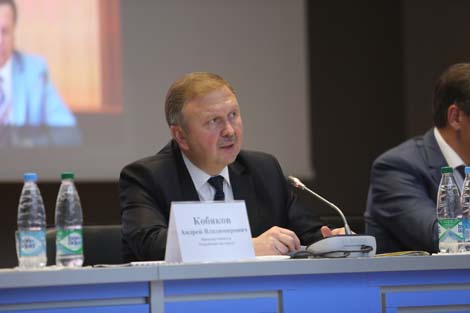
MINSK, 29 June (BelTA) – Conventional branches of the national economy should be adjusted to make them more susceptible to innovations. Prime Minister of Belarus Andrei Kobyakov made the statement during the national seminar on digital economy on 29 June, BelTA has learned.
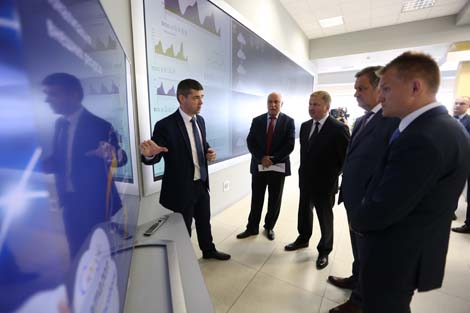 The head of government said: “The Digital Economy Development Ordinance signed in late 2017 has created unprecedented conditions for the Belarusian IT industry. We expect that the approbation of several legislative norms in the Hi-Tech Park will allow transferring this experience onto the entire economy later on. IT sphere, telecommunications, and communications represent only a small part of the economy we will have to change in order to meet technological requirements of the modern world. We face an ambitious and complicated task. We have to make conventional branches – healthcare, retail, production sector, agriculture, and transport system – susceptible to innovations.”
The head of government said: “The Digital Economy Development Ordinance signed in late 2017 has created unprecedented conditions for the Belarusian IT industry. We expect that the approbation of several legislative norms in the Hi-Tech Park will allow transferring this experience onto the entire economy later on. IT sphere, telecommunications, and communications represent only a small part of the economy we will have to change in order to meet technological requirements of the modern world. We face an ambitious and complicated task. We have to make conventional branches – healthcare, retail, production sector, agriculture, and transport system – susceptible to innovations.”
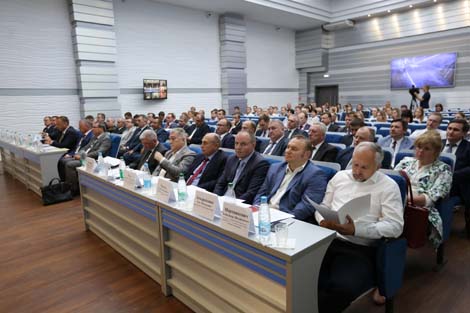 Andrei Kobyakov remarked that in the current five-year term it will be necessary to accomplish 12 key tasks. Among other things Belarus will have to create one of Eastern Europe’s latest telecommunication infrastructures. Belarus will need a full-fledged digital government. Smart home solutions will have to be installed by default in new houses and apartments. Data collection and processing technologies should be embraced across the board. It is necessary to study possibilities of using cutting-edge data transfer and storage technologies in banking, state administration, and the notarial system.
Andrei Kobyakov remarked that in the current five-year term it will be necessary to accomplish 12 key tasks. Among other things Belarus will have to create one of Eastern Europe’s latest telecommunication infrastructures. Belarus will need a full-fledged digital government. Smart home solutions will have to be installed by default in new houses and apartments. Data collection and processing technologies should be embraced across the board. It is necessary to study possibilities of using cutting-edge data transfer and storage technologies in banking, state administration, and the notarial system.
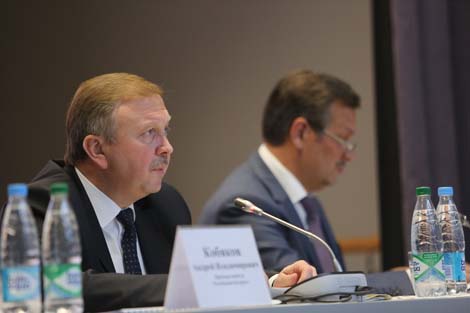 Apart from that, there are plans to develop digital trade, use the top world and regional payment systems, provide wireless broadband Internet access and digital education solutions in all the secondary schools, create automated systems for monitoring and controlling the state of the transport infrastructure, introduce smart solutions to regulate vehicle traffic, fuel consumption management solutions in transport industry. It will be necessary to introduce autonomous manufacturing systems, control systems based on the Internet of Things, 3D printing technologies, introduce digital technologies at every step of the manufacturing cycle, make the transition to precision farming in agriculture, deploy automated fuel and energy control solutions across the board, solutions to control the technical state of infrastructure, solutions to control the correct calculation and payment of utility bills. A legal, educational, and investment environment will have to be created in Belarus, too.
Apart from that, there are plans to develop digital trade, use the top world and regional payment systems, provide wireless broadband Internet access and digital education solutions in all the secondary schools, create automated systems for monitoring and controlling the state of the transport infrastructure, introduce smart solutions to regulate vehicle traffic, fuel consumption management solutions in transport industry. It will be necessary to introduce autonomous manufacturing systems, control systems based on the Internet of Things, 3D printing technologies, introduce digital technologies at every step of the manufacturing cycle, make the transition to precision farming in agriculture, deploy automated fuel and energy control solutions across the board, solutions to control the technical state of infrastructure, solutions to control the correct calculation and payment of utility bills. A legal, educational, and investment environment will have to be created in Belarus, too.
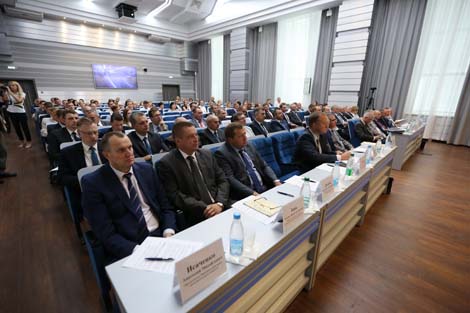 At the same time, according to the prime minister, it is clearly understood that the successful development of the digital economy is not limited to technologies alone but depends on the effective administration of the changes to a large degree. “Since digital technologies are embraced everywhere these days and new technical solutions appear every other day, we have to stay up to date on current trends, prospects, and successful examples of their assimilation in the public sector. With this in mind the Communications and Informatization Ministry has been instructed to organize continuous IT education for executive personnel at all levels of the state administration system. Events like today’s seminar should help executives adapt to the digital work, focus their attention on key development trends, approaches to tackling various tasks in conventional industries using cutting-edge technologies while generating maximum digital dividends for the country,” he stated.
At the same time, according to the prime minister, it is clearly understood that the successful development of the digital economy is not limited to technologies alone but depends on the effective administration of the changes to a large degree. “Since digital technologies are embraced everywhere these days and new technical solutions appear every other day, we have to stay up to date on current trends, prospects, and successful examples of their assimilation in the public sector. With this in mind the Communications and Informatization Ministry has been instructed to organize continuous IT education for executive personnel at all levels of the state administration system. Events like today’s seminar should help executives adapt to the digital work, focus their attention on key development trends, approaches to tackling various tasks in conventional industries using cutting-edge technologies while generating maximum digital dividends for the country,” he stated.
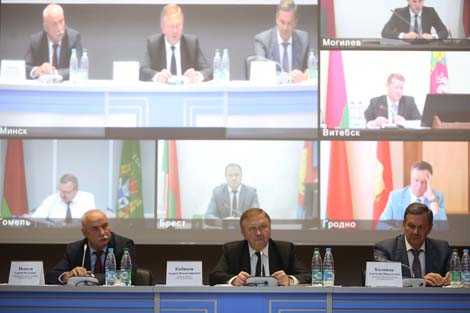 Andrei Kobyakov reminded about the head of state’s instructions to convert Belarus into an IT country. New digital technologies will have to be embraced by the Belarusian society and the national economy to make that happen. State administration agencies, the education system, various regulators will have to radically revise their routines in order to enable the necessary conditions for reaching these goals. “We’ve already made some important steps. A government program to guide the development of the digital economy and the information society in 2016-2020 has been adopted to enable transition to new forms of organization of modern enterprises using cutting-edge technologies. A digital economy promotion council has been established,” concluded Andrei Kobyakov.
Andrei Kobyakov reminded about the head of state’s instructions to convert Belarus into an IT country. New digital technologies will have to be embraced by the Belarusian society and the national economy to make that happen. State administration agencies, the education system, various regulators will have to radically revise their routines in order to enable the necessary conditions for reaching these goals. “We’ve already made some important steps. A government program to guide the development of the digital economy and the information society in 2016-2020 has been adopted to enable transition to new forms of organization of modern enterprises using cutting-edge technologies. A digital economy promotion council has been established,” concluded Andrei Kobyakov.


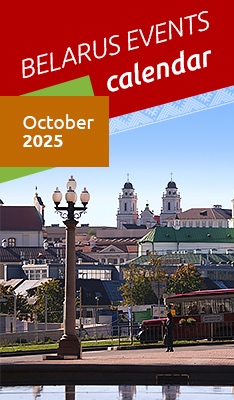




 print version
print version make home page
make home page add to bookmarks
add to bookmarks

